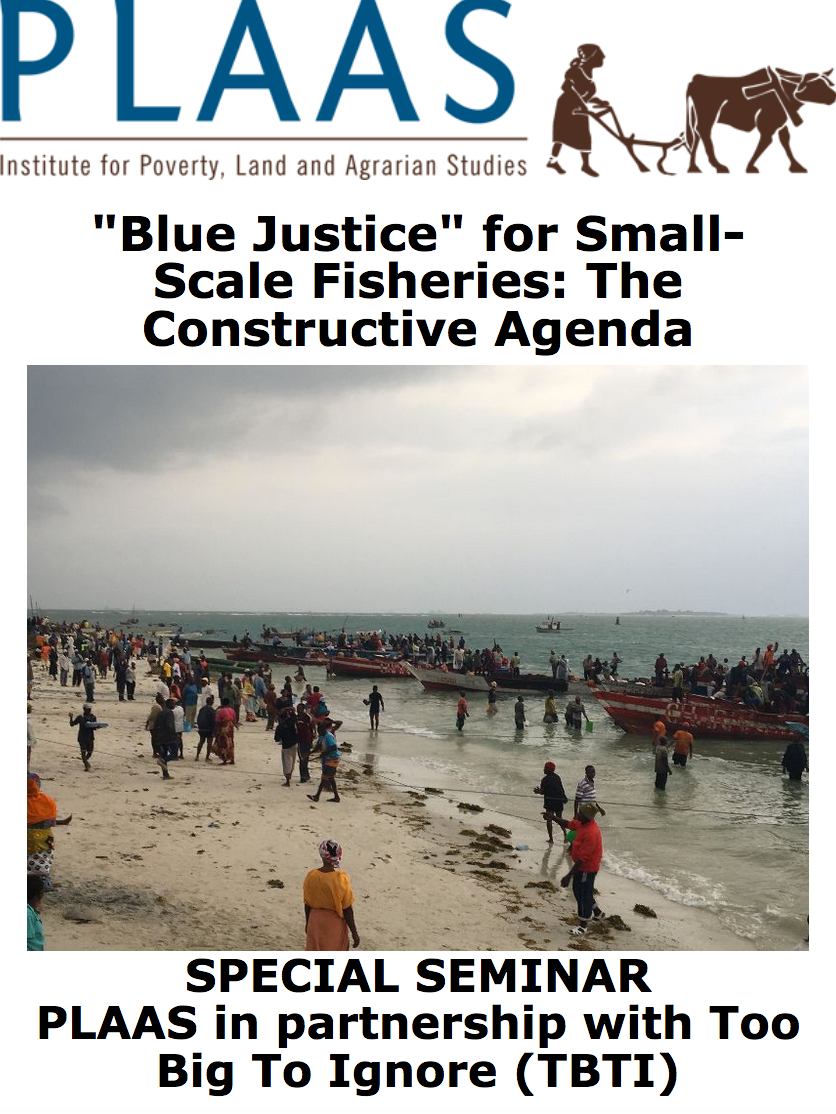On January 25, PLAAS and TBTI organized a special seminar as a way to encourage discussion about 'Blue Justice' and SSF.
The recording of the seminar is available HERE.
[please ensure you view the video via Internet Explorer]
e Fisheries: The Constructive Agenda
On January 25, Institute for Poverty, Land and Agrarian Studies, University of Western Cape, in partnership with TBTI, organized a special seminar as a way to encourage discussion about the concept of 'Blue Justice' in relation to small-scale fisheries. The seminar also emphasized the need to connect the key international instruments such as the Voluntary Guidelines for Securing Sustainable Small-Scale Fisheries, the Governance of Tenure, and the Right to Food Guidelines, to meaningfully engage with local small-scale fishing communities, in order to secure access, food and livelihoods.
The seminar began with presentations by the following TBTI members. It was chaired, and the discussion moderated, by Naseegh Jaffer, of Masifundise, TBTI partner based in South Africa.
-
Prof Ratana Chuenpagdee, Memorial University of Newfoundland, Canada
“Building transdisciplinary capacity for Blue Justice” -
Prof Svein Jentoft, UiT- The Arctic University of Norway, Norway
“Situating human rights principles in the Blue Economy” -
Prof Moenieba Isaacs, PLAAS, University of the Western Cape
“Three narratives driving the Blue Economy agenda”
In November 2018, Kenya hosted the Blue Growth Conference on the continent to promote the blue economy, blue bonds, and blue investments as the next development strategy for African nations. A key link to the blue growth agenda is the sustainability of the oceans through adopting the Sustainable Development Goals (SDGs).
Key questions in this seminar were:
- To what extent are blue growth initiatives challenging the existing social structures, power relations, access rights, and rights of small-scale fisheries engaging in livelihoods activities in the same ocean space?
- To what extent are small-scale fishers part of the debates, discussions and decisions when their fishing grounds are under threat?
- More importantly, who benefits from the blue growth agenda?
PLAAS in partnership with Too Big To Ignore invited debates and discussions about the concept of Blue Justice for Small-Scale Fisheries, making it part of the ‘constructive’ agenda for small-scale fisheries, particularly in light of the envisaged International Year of Artisanal Fisheries and Aquaculture in 2022.
















